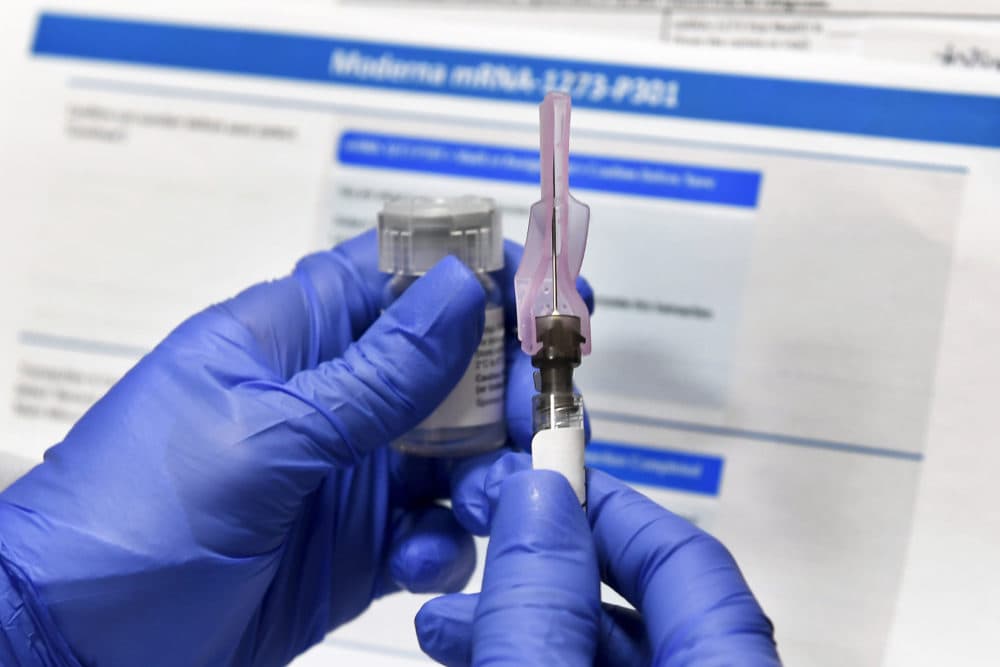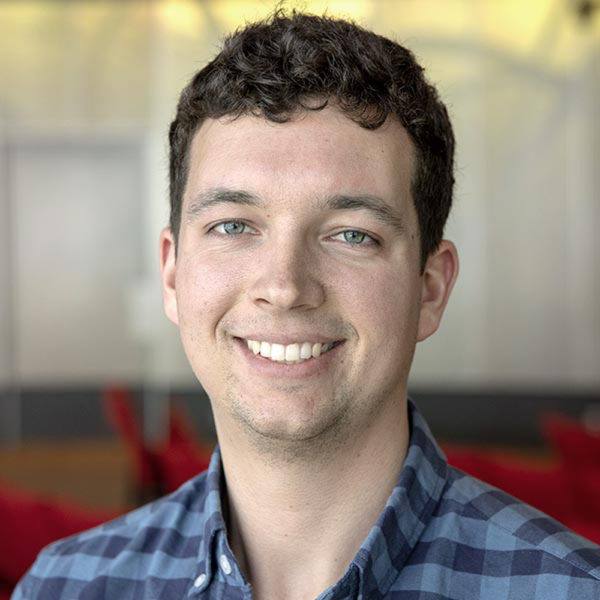Advertisement
The Vaccine Could Arrive In Massachusetts By Mid-December
Resume
Governor Charlie Baker sounded coronavirus alarm bells anew today, after the state reported a record-breaking 4,600 new coronavirus cases on Wednesday.
But, the vaccine is coming. Massachusetts might have its first shipment of vaccine doses in less than two weeks. We talk with Dr. David Rosman, president of the Massachusetts Medical Society, on the state's capacity to distribute a vaccine and handle the surge in cases.
Interview Highlights
On whether the state has the healthcare capacity needed to weather the surge:
Dr. David Rosman: "It's an important moment right now that we're in and 4,600 cases yesterday, newly diagnosed — that is certainly concerning, as you say. It's growing, and it's growing fast. And if we look at the data and trying to compare the number of cases being diagnosed now to being diagnosed in March or April, it's difficult because the state has done a good job in getting much more testing available than we had then. So we're doing ... over 100,000 tests a day, whereas back in March and April, we were doing a tiny fraction of that."
"On the other hand, the truth is there's just as much COVID — and probably more COVID — in Massachusetts than there was back in March and April. And the way to know that is to look at the wastewater data. When we flush the toilet, that doesn't lie. And the wastewater data demonstrates that there's much more COVID now in Massachusetts than there was back in March and April. So we're at our most dangerous moment."
"On the bright side — you know, and I don't wish COVID on anybody — but it's younger people who have been getting it rather than older people. And although young people can get very sick, young people can die, young people can bring it to older people especially during the holidays, it is the case that fewer of them end up in the hospital, and therefore the hospitals have not yet been overrun. We're actually probably about one third of the total hospital utilization by COVID that we were back in March and April. We maxed out around 4,000 cases in the hospital, and now we are under 2,000. And so there's room for more. But but we are getting up against some very worrisome times. And I think the Commonwealth, the community, the people really need to to realize what a dangerous time we're in."
On what needs to happen to reduce COVID-19 infection:
Dr. David Rosman: "What we know is that public health measures work. People wearing masks, people keeping their distance, people washing their hands. People not going to Thanksgiving — and, you know, that's already passed. People not going and gathering during Christmas. These things are really important ... We have a lot more testing capacity than we had then. The outcomes within the hospitals are substantially better than they had been then. And we know how to care for the disease better than we did then. You know, it feels like a whole different world than it did at that time. And so ultimately, the decision of what to keep open or not is that's that's way above my pay grade. What I look at is, is the reality that we know that it's growing. We know the public health measures that will help. And it's imploring the public to to do what we know we need to, even if it's inconvenient."
On if people in the community are prepared to take a COVID-19 vaccine:
Dr. David Rosman: "The history of vaccine, skepticism is long, and it has got very many different pockets and some of the anti-vaccination belief set. And, you know, science has dispelled those myths, but has not dismissed the continued force there."
"Another is in minority Black and brown communities. There is a deserved mistrust of the health care community that is longstanding from [the] Tuskegee [Syphilis Study] and beyond. And so that is something that we need to continue to work very hard to earn trust, and quickly. Because within those communities, we need to make sure — [those] who are most vulnerable, who are known to be getting COVID at higher rates, die of it at higher rates — that they have ... easy, free, ready access to vaccines."
"Within the health care community, you know, we're fortunate enough to understand the science, look at the science, know the science, and see the long history of vaccines as safe and effective and that there's impressive history here as well. So I think we'll be in good shape."
This segment aired on December 3, 2020.

